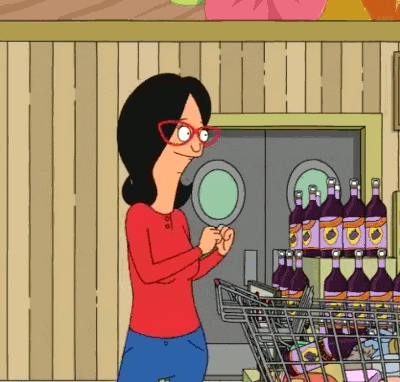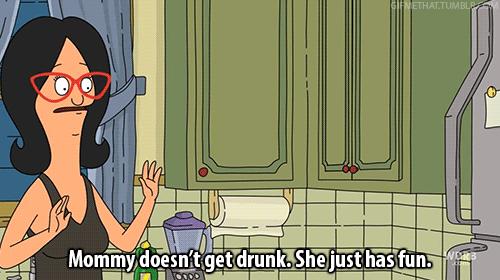As a feminist, I see injustice daily. Things like the gender binary and high school dress codes that are ingrained into our society do not slip past my radar. In that sense, activism is incredibly draining. I can’t re-watch old “NCIS” episodes that I watched with my grandparents without seeing the police brutality. I can’t look at classic art without my skin boiling from the objectification of women. While I would rather be able to see injustices than be blind to them, constant awareness can be, frankly, exhausting.
When everything that is not socially or politically correct weighs heavy on my shoulders, my guardian angel of pop culture television comes to me: “Bob’s Burgers.”
“Bob’s Burgers” is a casually feminist masterpiece. It breaks the mold of many of its predecessors. Family sitcoms, animated or otherwise, tend to rely on the same tired trope: a home-maker wife that is stupid hot, a lovably out of shape dad with a dead end job and low IQ, a teenage child who resents rules, and a younger sibling who is generally very smart. See: “American Dad,” “The Simpsons,” “Family Guy,” and pretty much anything Disney Channel released in the early 2000s.
While “Bob’s Burgers” follows the general nuclear family structure of mom, dad, teen, and children, there is no sign of the exhausted tropes we see in the aforementioned shows. Bob isn’t a bumbling idiot. He is an exasperated small business owner who cares about his family. The dad/daughter relationship portrayed between Louise and Bob is one of the most real character dynamics of the show. Bob openly and willingly tries to bond with his children, proving that it’s not just the mother’s job to pull the family together.
Linda. Oh, Linda. I want to grow up to be just like Linda Belcher. Tina is often revered as the best feminist role model on the show, but, while I agree that Tina is a strong representation of feminism, no one gives nearly enough credit to my girl Linda. Linda looks like a mom. Not that moms can’t look like Louis Griffin or Marge Simpson, but they have both given birth to three children, one of which is under three years old. Come on, let’s be realistic. Baby weight is hard to shake.
Linda isn’t the typical stay at home mom portrayed in other animated family comedies. In shows like “The Simpsons” and “Family Guy,” the wife is portrayed as the one who sits sternly at home while her husband is off at the local bar getting trashed with his buddies. Neither Bob nor Linda has that need for escape. They all hang out together as a family, but, if you’re Linda, you’re gonna have a glass of wine first.
Linda is a goofy, hyper-supportive parent, who demands equality. Let’s not forget when she got a part time job to help the family and then went full time when she felt she wasn’t appreciated at her husband’s restaurant. You go girl.
As I mentioned, Tina is a pretty kickin’ feminist role model. She, like most 13-year-old girls, is absolutely swimming in puberty; she is definitely boy-crazy. Even though she focuses most of her time on fantasizing about her long-time crush, Jimmy Jr., and writing “Erotic Friend Fiction,” Tina is unapologetically feminist.
She tries the non-feminist route once, pretending that she is unintelligent and helpless to get the attention of a boy, but snaps out of it when she realizes that not only is her ploy not working, but she is a “smart, strong, sensual woman.”

Even the younger kids, Gene and Louise, embody some feminist principles. Louise is a fairly gender-neutral child despite her pink-bunny-ear wearing habits. She is a cunning little girl who rejects almost anything labelled as girly including boy bands and slumber parties. Louise is outspoken and well-versed on different ways to get what she wants, whether they be moral or not.
Gene’s feminism is subtle, but probably the most important message of the show. Gene denies the stereotype of the younger brother who is dragged along into his sister’s adventures. In fact, when he is given the role of pesky brother at Louise’s slumber party, he tells the girls that he is bothering that this isn’t what he wants to do, he just wants to tie-dye some shirts and be one of them in their activities. Gene, like Louise, doesn’t see things as “boy” or “girl,” he sees adventure as adventure, and is more than happy to accompany his sisters into their escapades.
The show isn’t perfect. In the main cast of five characters—two males and three females—only one of the voice actors is a woman. There are definitely still issues with the show, but the awkward humor and feminist undertones will always have a place in my heart and my Netflix queue.





















